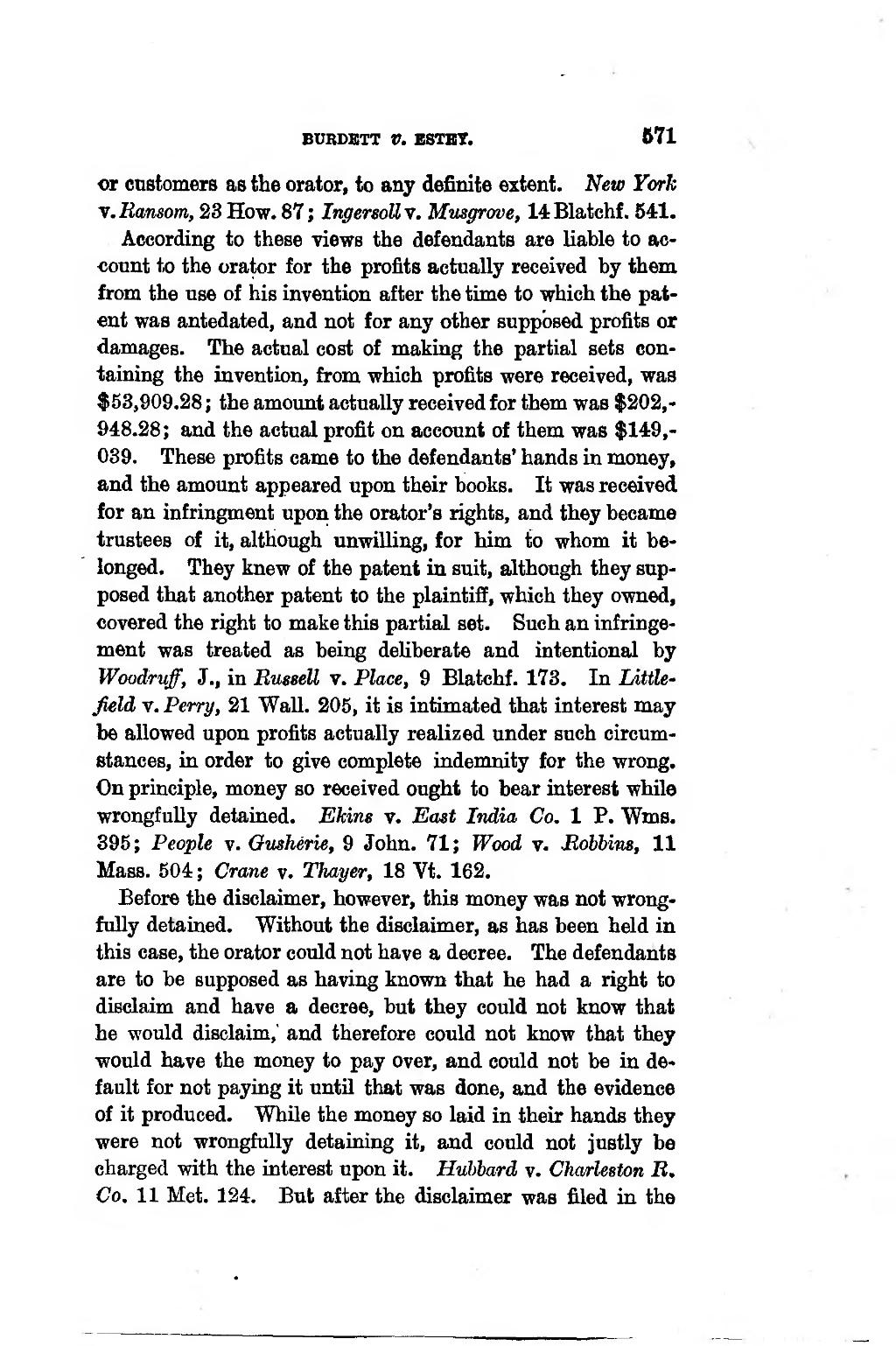BURDBTT V. E8TBT. 671 �or customers as the orator, to any definite extent, New York y.Bansom, 23 How. 87; Ingersollr. Musgrove, leBlatchf. 54:1. �According to these views the defendants are liable to ac- «ount to the orator for the profits actually received by them from the use of his invention after the time to which the pat- ent was antedated, and not for any other suppbsed profits or damages. The actual cost of making the partial sets con- taining the invention, from which profits were received, was $53,909.28 ; the amount actually received for them was $202,- 948.28; and the actual profit on account of them was $le9,- 039. These profits came to the defendants' hands in money, and the amount appeared upon their books. It was received for an infringment upon the orator's rights, and they became trustees of it, although unwilling, for him to whom it be- longed. They knew of the patent in suit, although they sup- posed that another patent to the plaintiff, which they owned, covered the right to make this partial set. Such an infringe- ment was treated as being deliberate and intentional by Woodruff, J., in BusseU v. Place, 9 Blatohf. 173. In Little- Jield V. Perry, 21 Wall. 205, it is intimated that interest may be allowed upon profits actually realized under such circum- stances, in order to give complete indemnity for the wrong. On principle, money so received ought to bear interest while wrongfully detained. Ekins v. East India Co. 1 P. Wms. 395; People v. Gmherie, 9 John. 71; Wood v. -RolUns, 11 Mass. 504 ; Crane v. Thayer, 18 Vt. 162. �Before the disclaimer, however, this money was not wrong- fully detained. Without the ^sclaimer, as bas been held in this case, the orator could not have a decree. The defendants are to be supposed as having known that he had a right to disclaim and bave a decree, but they could not know that he would disclaim, and therefore could not know that they would bave the money to pay over, and could not be in de- fault for not paying it until that was done, and the evidence of it produced. "While the money so laid in their hands they were not wrongfully detaining it, and could not justly be charged with the interest upon it. Huhbard v. Charleston R. Co. 11 Met. 124. But after the disclaimer was filed in the ����
